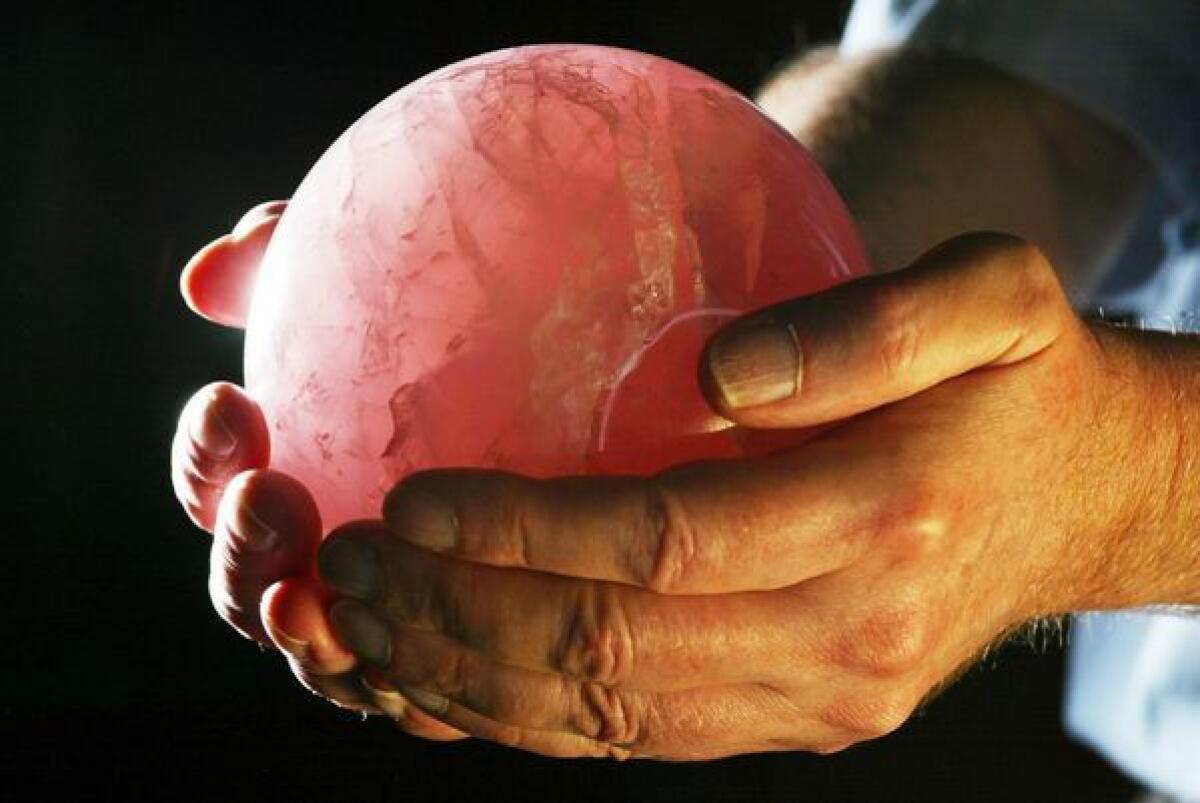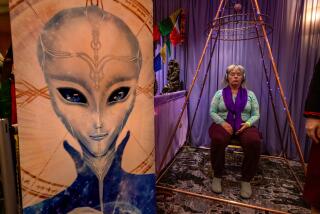TEDx conference organizers told to shape up or ship out

- Share via
Have you ever been to a TED conference — those immersion events aimed at facilitating cross-fertilization between attendees and speakers and “inspiration from unlikely places”? If you have, you likely shelled out: An upcoming Long Beach event, “The Young. The Wise. The Undiscovered.” running Feb. 25–March 1, costs $7,500 to attend. It’s sold out.
TEDx conferences are a little different: Planned and coordinated separately from TED events and far cheaper and easier to get into, they’re still licensed by TED (with a lot of rules) and “designed to give communities, organizations and individuals the opportunity to stimulate dialogue through TED-like experiences at the local level.”
But there have been rumblings about the quality of TEDx events, and now the TEDx director has gone so far as to post guidelines reminding the organizers to properly vet their participants.
See “A letter to the TEDx community about TEDx and bad science” from TEDx Director Lara Stein and TED.com Editor Emily McManus, which went up online Dec. 7.
“Hello TEDx Community,” Stein and McManus write. “In light of a few suspect talks that have come out of the TEDx movement — some of which we at TED have taken action to remove, some being examined now — and this recent thread on Reddit, we feel it is important to reach out to all TEDx organizers on the topic of bad science and pseudoscience.
“Please know this above all: It is your job, before any speaker is booked, to check them out, and to reject bad science, pseudoscience and health hoaxes. ... It is not your audience’s job to figure out if a speaker is offering legitimate science or not. It is your job.”
The rest of the letter offers tips for sniffing out pseudoscience and a warning that TEDx licenses will be revoked if this task isn’t properly executed.
So what’s all the rumbling about? Critics take issue with TEDx talks that have featured such topics as touch-healing the brain, rebirthing, crystal therapy and nonsense math. Earlier this year, science writer Carl Zimmer slammed what he’s seen of not just TEDx talks but some TED ones too. He argues that part of the problem is the whole format of the meetings:
“In effect, you’re meant to feel as if you’re receiving a revelation. TED speakers tend to open up their talks like sales pitches, trying to arouse your interest in what they are about to say. They are promising to rock your world, even if they’re only talking about mushrooms.”
Since TED and TEDx conferences are meant to showcase people with thrilling, outside-the-box, life-altering ideas, vetting would seem at once all the more tricky and important. By simple laws of probability most people who have an idea vastly different than everyone else in their field are likely wrong, and even if they’re right, the idea is unlikely to be huge and life-altering.
The vetting guidelines drawn up by the TEDx crew are probably helpful refreshers for any of us as we navigate our day-to-day lives, barraged as we are with promises of miracle cures and warnings of dark dangers that often have little to them. Bad signs listed in the guidelines include ideas that can’t be tested and verified by others and that are roundly rejected by scientific peers; good signs include ideas that are backed up by experiments published in respected peer reviewed journals and with proponents who are “secure enough to accept areas of doubt and need for further investigation,” to name just a few of the items on the list.
As long as we’re talking about this, here are more tips to assessing scientific claims (as they pertain to health products) pulled together in this slightly old but ever relevant article by freelance writer Chris Woolston, titled “Step Right Up, Folks!”






